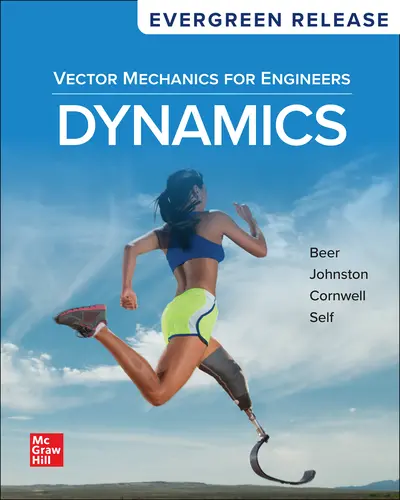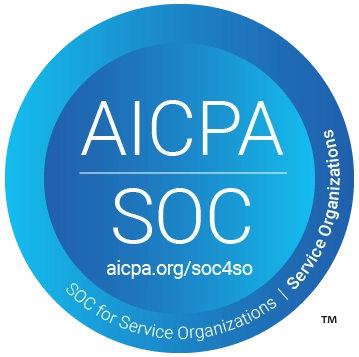My Account Details


Vector Mechanics for Engineers: Dynamics, 2024 Release
Format Options:
-
Lowest Price!
Print from $70.00 -
Connect from $125.12
Textbook Rental (150 Days Access)
- Rent for a fraction of the printed textbook price
- Complete text bound in hardcover or softcover
Loose-Leaf Purchase
Unbound loose-leaf version of full text
Shipping Options
- Standard
- Next-day air
- 2nd-day air
Orders within the United States are shipped via FedEx or UPS Ground. For shipments to locations outside of the U.S., only standard shipping is available. All shipping options assume the product is available and that processing an order takes 24 to 48 hours prior to shipping.
Note: Connect can only be used if assigned by your instructor.
Connect (6 Months Access)
- Digital access to a comprehensive online learning platform
- Includes homework, study tools, eBook, and adaptive assignments
- Download the free ReadAnywhere app to access the eBook offline
* The estimated amount of time this product will be on the market is based on a number of factors, including faculty input to instructional design and the prior revision cycle and updates to academic research-which typically results in a revision cycle ranging from every two to four years for this product. Pricing subject to change at any time.
Instructor Information
Quick Actions (Only for Validated Instructor Accounts):
Vector Mechanics for Engineers helps students analyze problems in a simple and logical manner and then apply basic principles to their solutions, encouraging a strong conceptual understanding of these basic principles. Offering a unified presentation of the principles of kinetics and a systematic problem-solving approach, the text has proven to be an effective teaching tool, especially when paired with the digital resources available in Connect.
12) Kinetics of Particles: Newton's Second Law
13) Kinetics of Particles: Energy and Momentum Methods
14) Systems of Particles
15) Kinematics of Rigid Bodies
16) Plane Motion of Rigid Bodies: Forces and Accelerations
17) Plane Motion of Rigid Bodies: Energy and Momentum Methods
18) Kinetics of Rigid Bodies in Three Dimensions
19) Mechanical Vibrations
Appendix Fundamentals of Engineering Examination
Main Features
- LMS Integration
- Print/Loose-Leaf Book Add-On Availability
- Presentation Slides & Instructor Resources
- Question & Test Banks
- Adaptive Assignments
- Student Progress Reporting & Analytics
- Essay Prompts
- Polling
- Prebuilt Courses
- Interactive Exercises
- eBook Access (ReadAnywhere App)
- Remote Proctoring (Proctorio)
- Subject-Specific Tools
About the Author
Ferdinand Beer
Born in France and educated in France and Switzerland, Ferdinand Beer held an M.S. degree from the Sorbonne and an Sc.D. degree in theoretical mechanics from the University of Geneva. He came to the United States after serving in the French army during the early part of World War II and taught for four years at Williams College in the Williams-MIT joint arts and engineering program. Following his service at Williams College, Beer joined the faculty of Lehigh University, where he taught for thirty-seven years. He held several positions, including the University Distinguished Professors Chair and Chairman of the Mechanical Engineering and Mechanics Department. In 1995, Beer was awarded an honorary Doctor of Engineering degree by Lehigh University.
E. Johnston
Born in Philadelphia, Russ holds a B.S. degree in civil engineering from the University of Delaware and an Sc.D. degree in the field of structural engineering from The Massachusetts Institute of Technology (MIT). He taught at Lehigh University and Worchester Polytechnic Institute (WPI) before joining the faculty of the University of Connecticut where he held the position of Chairman of the Civil Engineering Department and taught for twenty-six years. In 1991 Russ received the Outstanding Civil Engineer Award from the Connecticut Section of the American Society of Civil Engineers.
Phillip Cornwell
Phillip J. Cornwell holds a B.S. degree in mechanical engineering from Texas Tech University and M.A. and Ph.D. degrees in mechanical and aerospace engineering from Princeton University. He is currently a professor of mechanical engineering at Rose-Hulman Institute of Technology, where he has taught since 1989. His present interests include structural dynamics, structural health monitoring, and undergraduate engineering education. Cornwell spends his summers working at Los Alamos National Laboratory, where he is a mentor in the Los Alamos Dynamics Summer School and does research in the area of structural health monitoring. He received an SAE Ralph R. Teetor Educational Award in 1992, the Dean's Outstanding Scholar Award at Rose-Hulman in 2000, and the Board of Trustees Outstanding Scholar Award at Rose-Hulman in 2001.
Brian Self
Brian Self obtained his B.S. and M.S. degrees in Engineering Mechanics from Virginia Tech, and his Ph.D. in Bioengineering from the University of Utah. He worked in the Air Force Research Laboratories before teaching at the U.S. Air Force Academy for seven years. Brian has taught in the Mechanical Engineering Department at California Polytechnic State University, San Luis Obispo, since 2006. He has been active in the American Society of Engineering Education, serving on its Board from 2008-2010. With a team of five, Brian developed the Dynamics Concept Inventory to help assess student conceptual understanding. His professional interests include educational research, aviation physiology, and biomechanics.
Accessibility
Creating accessible products is a priority for McGraw Hill. We make accessibility and adhering to WCAG AA guidelines a part of our day-to-day development efforts and product roadmaps.
For more information, visit our accessibility page, or contact us at accessibility@mheducation.com
Affordability
Reduce course material costs for your students while still providing full access to everything they need to be successful. It isn't too good to be true - it's Inclusive Access.
Need support? We're here to help - Get real-world support and resources every step of the way.

